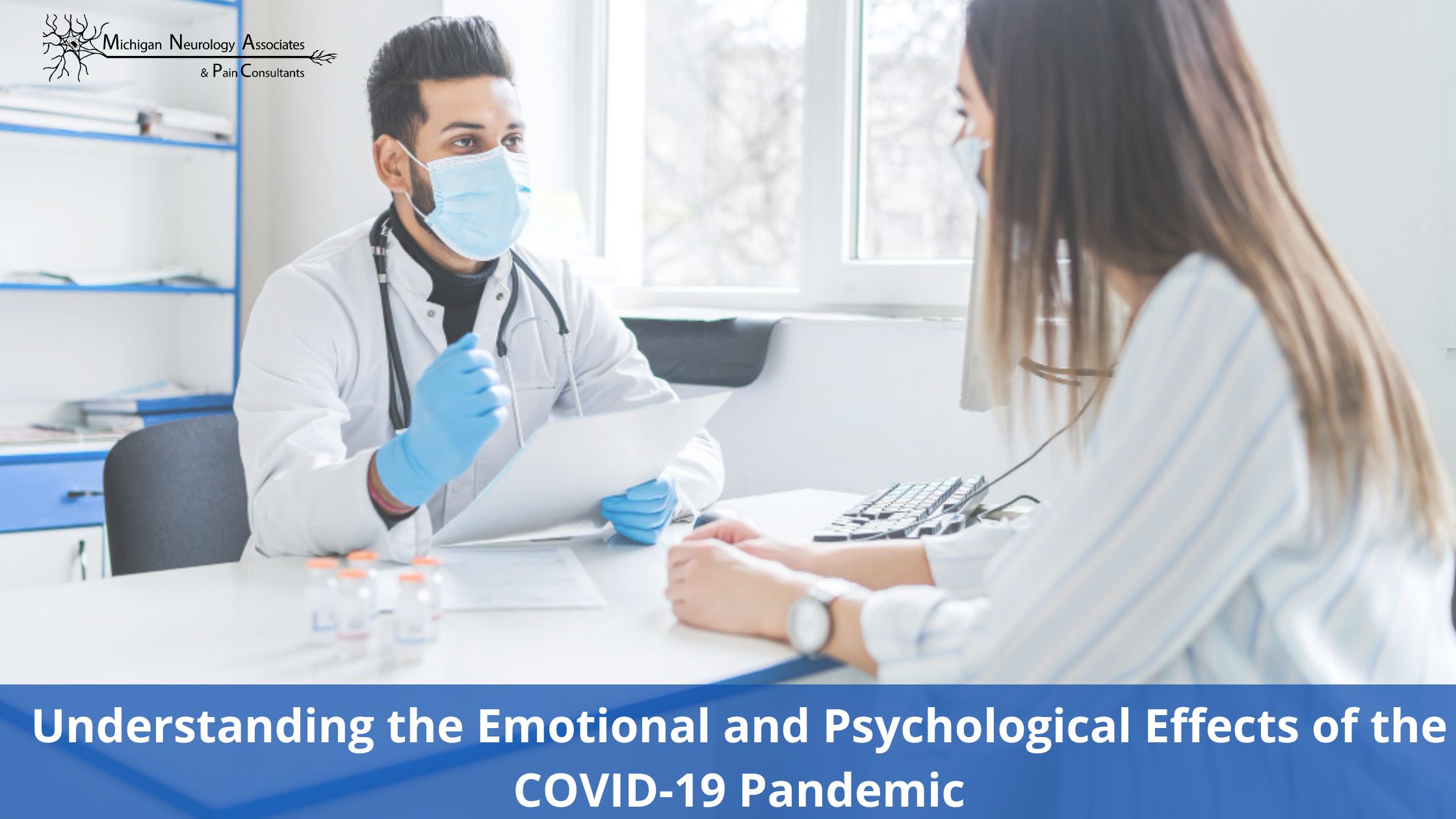



The COVID-19 pandemic, caused by the novel coronavirus SARS-CoV-2, has profoundly impacted people's emotional and psychological well-being. The fear and uncertainty surrounding the virus, coupled with the measures implemented to contain its spread, such as lockdowns and social distancing, have led to mental health disorders.
In early 2021, 4 in 10 adults reported experiencing symptoms of stress, anxiety, and depression, and later it became 3 in 10 adults as the pandemic continued. The persistent threat of the virus, the loss of loved ones, and the disruption of daily routines further contributed to isolation and loneliness. In addition, the conflicting information surrounding the pandemic has added to the mental toll on individuals, creating a sense of overwhelm and helplessness. Let's discuss the impact of COVID-19 on mental health and strategies to cope with it.
The COVID-19 pandemic has brought a wave of fear and uncertainty due to falling ill or losing a loved one. The evolving social distancing and isolation guidelines have left many individuals uncertain about their safety.
Also, the concern extends beyond just the fear of death; including school closures, family dynamics, social isolation, and economic implications. All of these have increased anxiety about the future. Many people were concerned about their health, job security, and the well-being of their loved ones, resulting in helplessness and overwhelming stress.
While fear has numerous detrimental consequences, one of the most harmful outcomes is the risk of suicide. According to a report, suicide deaths have begun to increase in the US after 2021.
Social distancing was imposed to slow the spread of the virus, but it had a significant emotional impact on people. Feelings of isolation, lack of physical contact, face-to-face interactions, acute stress, intrusive thoughts, and anxiety have become increasingly common. Coping with these feelings can be difficult, but some strategies can help.
Keeping in touch with loved ones through technology, going for a walk, engaging in activities that bring joy and fulfillment, practicing mindfulness along with self-care, and joining a virtual support group are effective ways to navigate feelings of loneliness during challenging times.
Social isolation, financial uncertainty, fear of getting sick, and disruptions to daily routines have caused stress and burnout. Burnout is associated with symptoms such as extreme tiredness, frustration, lack of energy, helplessness, dissatisfaction, insomnia, recurrent headaches, loss of appetite, etc.
You can effectively manage these symptoms with coping mechanisms, including setting limits to work hours, taking regular breaks, prioritizing self-care, getting enough sleep, eating healthy, checking in with loved ones regularly, and practicing relaxation techniques.
During the pandemic, people have shown a higher prevalence of symptoms related to anxiety and depression.
For instance, individuals who faced household job loss were more prone to reporting depression symptoms compared to those who did not experience such circumstances (53% vs. 30%). Also, 50% of young adults (ages 18-24) exhibited symptoms of depression, indicating a higher likelihood of mental health issues compared to older adults.
The challenges faced by young adults during the pandemic, including university closures, transitioning to remote work, and loss of income or employment, may have contributed to their increased vulnerability to mental health issues. Moreover, women had a higher prevalence of depression symptoms (36%) as compared to men (28%).
According to research, 1 in 5 people after the COVID-19 pandemic have experienced traumatic disorders, such as post-traumatic stress disorder (PTSD), depression, and anxiety.
Those who have experienced trauma are at a higher risk for developing mental health issues such as PTSD, depression, anxiety, and substance abuse. Trauma can affect the brain's stress response system, leading to emotional regulation difficulties and increased sensitivity to triggers.
Let's discuss the effects of social isolation on a person's mental health.
Strong social relationships can reduce the risk of mental health issues such as depression and anxiety. The support and companionship of friends and family members can provide a sense of belonging and security, improving overall well-being.
However, the pandemic has created challenges in maintaining social relationships, such as a lack of face-to-face interaction and in-person visits or contact with loved ones. Virtual communication tools have helped bridge the gap, but they may not always be sufficient in fulfilling the need for human connection or in-person hangouts.
Loneliness and distress result from a lack of social interaction, disruption of daily routines, and increased feelings of uncertainty. To mitigate these feelings, individuals must seek out connections with others through virtual platforms.
Maintaining a daily routine that includes regular exercise, healthy eating, engaging in hobbies (gardening, reading, or painting), and sufficient sleep can also help to manage isolation.
Here are some adaptive coping mechanisms -
You can access professional mental health services to diagnose and treat your mental health disorders, such as stress, anxiety, PTSD, etc. You can tap into online resources for valuable information on coping strategies, self-care tips, etc. Furthermore, you can join support groups on social media platforms to connect with those experiencing similar disorders and get help and insights.
At Michigan Neurology Associates & Pain Consultants, we understand that emotional and psychological wellness is crucial for overall health. Our experienced psychologists offer personalized diagnosis and treatment strategies tailored to your unique needs, improving your mental health and life quality. Schedule an appointment today to overcome your mental health issues.
Content Source: kff.org